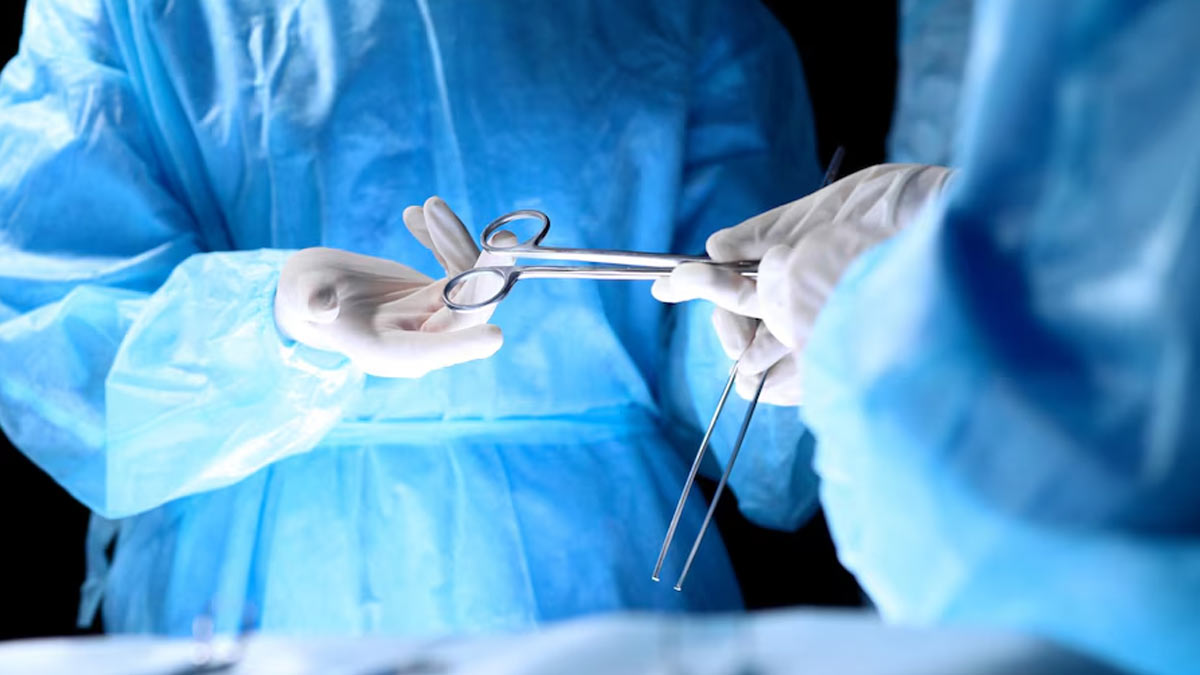
Have you heard about weight loss surgeries that can help you eat less by reducing the size of your stomach? Yes, we are talking about bariatric surgery, such as gastric sleeve and gastric bypass. These surgeries are aimed at reducing the weight of patients with morbid obesity. They are offered to patients who are unable to reduce their weight even after all dietary modifications, lifestyle changes and medical management. We spoke to experts who explained these surgeries, their uses, benefits, and side effects.
Table of Content:-
Let us first understand morbid obesity. It is a condition where the BMI (Body Mass Index) of an individual is more than 40kg/m2 or 35kg/m2 along with obesity-related comorbidity. It significantly increases the risk of various health complications, including heart disease, stroke, type 2 diabetes, sleep apnea, and certain types of cancer.

Gastric Sleeve Surgery: A Restrictive Approach
Gastric sleeve surgery (sleeve gastrectomy) is primarily a restrictive bariatric surgery wherein the stomach is made into a tube, thereby reducing the quantity of food the patient intakes and also reducing the orexigenic hormones, said Dr Vidya Bhat, Surgical Gastroenterologist, KMC Hospital, Mangalore.
According to a 2014 study, gastric sleeve surgery additionally eliminates the upper, curved section of the stomach known as the fundus, which is the primary site for the production of the ‘hunger hormone’ ghrelin. By diminishing ghrelin levels, the procedure can also induce satiety and diminish appetite.
Also Read: PCOS, Obesity, And Infertility: Expert Explains Their Connection And What You Should Know

Gastric Bypass: A Malabsorptive Procedure
“Gastric bypass (Roux-en-Y gastric bypass) is more of a malabsorptive procedure. It is technical, more complex and involves reducing the common channel for bile and food thereby causing malabsorption. It is considered one of the best bariatric procedures with better long-term results”, added Dr Bhat.
Choosing the Right Procedure
Sumalatha Vasudeva, Psychologist, Gleneagles BGS Hospital, Bengaluru, explained how to choose the right procedure. This includes:
Gastric Bypass (GB): Preferred for patients with type 2 diabetes mellitus, especially those with recent onset.
Sleeve Gastrectomy (SG) is the preferred to GB in patients with
- Patients who have had previous intestinal/abdominal surgery and have extensive adhesions in the small bowel
- Biliary disease who may need endoscopic intervention in future (ERCP)
- Significant liver disease, such as cirrhosis caused by non-alcoholic fatty liver disease, and renal disease, such as renal failure, or patients awaiting renal transplant) disease
- Chronic small intestinal diseases (inflammatory bowel disease and celiac disease)
- Poorly controlled diabetes or who are at higher risk of developing postprandial hypoglycemia
- A high probability of not fully adhering to post‐operative vitamin/mineral/protein supplementation regimen or who may not attend regular follow‐up
Also Read: Obesity And Diabetes: Expert Lists Dietary Tips For Managing And Reversing Obesity And Diabetes

Considerations and Contraindications
Sleeve Gastrectomy (SG): Should be avoided in patients with severe gastroesophageal reflux (GERD), hiatal hernia greater than 3 cm in size, or a strong family history of oesophagal or gastric cancer.
According to the American Society for Metabolic and Bariatric Surgery, due to its greater complexity compared to gastric sleeve surgery, gastric bypass surgery carries a higher likelihood of encountering side effects and risks, which may include:
- Increased risk of nutrient deficiencies compared to gastric sleeve surgery
- Potential for developing bowel obstruction
- Risk of developing ulcers
- Possibility of experiencing saggy or loose skin
- Potential formation of gallstones
- Risk of experiencing dumping syndrome
Late Complications
- Sleeve Gastrectomy (SG): Late complications include GERD, dysphagia or odynophagia, and weight regain.
- Gastric Bypass (GB): Late complications may include anastomotic stricture/ulceration, small bowel obstruction, dumping syndrome, postprandial hypoglycemia, food intolerance, malabsorption, micronutrient deficiencies, and weight regain.
[Disclaimer: This article contains information provided by an expert and is for informational purposes only. Hence, we advise you to consult your expert if you are facing any health issues to get the necessary treatment.]
Also watch this video
How we keep this article up to date:
We work with experts and keep a close eye on the latest in health and wellness. Whenever there is a new research or helpful information, we update our articles with accurate and useful advice.
Current Version